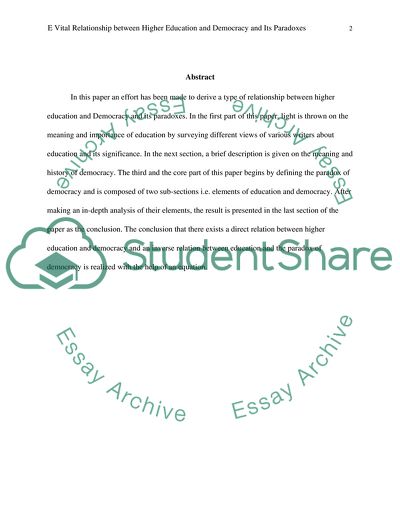Cite this document
(“A Vital Relationship Between Higher Education and Democracy and Its Term Paper”, n.d.)
A Vital Relationship Between Higher Education and Democracy and Its Term Paper. Retrieved from https://studentshare.org/education/1744786-the-vital-relationship-between-higher-education-and-democracy-and-its-paradoxes
A Vital Relationship Between Higher Education and Democracy and Its Term Paper. Retrieved from https://studentshare.org/education/1744786-the-vital-relationship-between-higher-education-and-democracy-and-its-paradoxes
(A Vital Relationship Between Higher Education and Democracy and Its Term Paper)
A Vital Relationship Between Higher Education and Democracy and Its Term Paper. https://studentshare.org/education/1744786-the-vital-relationship-between-higher-education-and-democracy-and-its-paradoxes.
A Vital Relationship Between Higher Education and Democracy and Its Term Paper. https://studentshare.org/education/1744786-the-vital-relationship-between-higher-education-and-democracy-and-its-paradoxes.
“A Vital Relationship Between Higher Education and Democracy and Its Term Paper”, n.d. https://studentshare.org/education/1744786-the-vital-relationship-between-higher-education-and-democracy-and-its-paradoxes.


